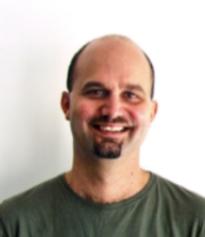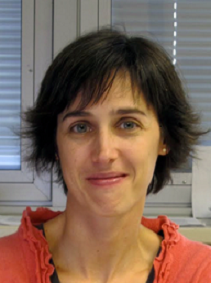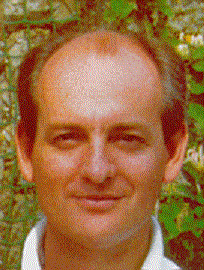ICAPS 2015 Invited Speakers
- Prof. Dr. Jörg Hoffmann,Saarland University, Germany - ECCAI invited speaker
- Prof. Joelle Pineau, McGill University, Canada
- Stuart Russell, Professor of Computer Science and Smith-Zadeh Professor in Engineering , University of California, Berkeley, USA (Joint talk with SoCS)
Jörg Hoffmann
Simulated Penetration Testing: From "Dijkstra" to "Turing Test++"
Abstract: Penetration testing (pentesting) is a well established method for identifying security weaknesses, by conducting friendly attacks. Simulated pentesting automates this process, through designing a model of the system at hand, and using model-based attack planning to generate the attacks. Classical planning variants of this idea are being used commercially by the pentesting industry since 2010. Such models can pinpoint potentially dangerous combinations of known vulnerabilities, but ignore the incomplete knowledge characteristic of hacking from the attacker's point of view. Yet, ideally, the simulation should conduct its attacks the same way a real attacker would. Hence the ultimate goal is much more ambitious: to realistically simulate a human hacker. This is a grand vision indeed; e.g., the classical Turing Test can be viewed as a sub-problem. Taking a more practical perspective, the simulated pentesting model space spans a broad range of sequential decision making problems. Analyzing prior work in AI and other relevant areas, we derive a systematization of this model space, highlighting a multitude of interesting challenges to AI sequential decision making research.

Bio: Jörg Hoffmannn obtained a PhD from the University of Freiburg, Germany, in 2002, with a thesis that won the ECCAI Dissertation award. After positions at Max Planck Institute for Computer Science (Saarbruecken, Germany), the University of Innsbruck (Austria), SAP Research (Karlsruhe, Germany), and INRIA (Nancy, France), he is now a Professor of CS at Saarland University, Saarbruecken, Germany. He has published more than 100 scientific papers, has been Conference Co-Chair of ICAPS'10 and Program Co-Chair of AAAI'12, and received several ICAPS Best Paper Awards as well as the IJCAI-JAIR Best Paper Prize 2005. His research interests span a broad range of topics relevant to AI planning, with a core focus on classical heuristic search planning but including also topics such as domain analysis, richer planning frameworks, and a variety of related areas and applications.
Joelle Pineau
Improving the design and discovery of dynamic treatment strategies using recent results in sequential decision-making
Abstract: In recent years, we have investigated algorithmic methods for automatically discovering and optimizing sequential treatments for chronic and life-threatening diseases. In this talk I will discuss two aspects of this work, first the problem of efficiently collecting data to learn good sequential treatment strategies, and second the problem of using data collected in multi-stage sequential trials to discover treatment strategies that are tailored to patient characteristics and time-dependent outcomes. The methods will be illustrated using our recent work on learning adaptive neurostimulation policies for the treatment of epilepsy. Brief examples will be drawn from some of our other projects, including developing dynamic treatment regimes for mental illness, diabetes and cancer.

Bio: Joelle Pineau is an Associate Professor at the School of Computer Science at McGill University, co-director of the Reasoning and Learning Lab, and member of the Centre for Intelligent Machines (CIM). Her research focuses on developing new models and algorithms for learning and decision-making in partially observable stochastic domains, and applying these models and algorithms to complex problems in robotics and health-care. She is on the editorial board of the Journal of Artificial Intelligence Research and the Journal of Machine Learning Research, and served as the program chair (2012) and general chair (2015) for the International Conference on Machine Learning.
Stuart Russell (Joint talk with SoCS)
Effective Desicion Making
Abstract: How can we design systems that can achieve reasonable decision quality over long time scales? One approach is based on temporal abstraction, allowing deliberation over action choices of long duration. The talk will explore this idea in the contexts of classical planning and hierarchical reinforcement learning. Two important open problems will be discussed: the adequacy of standard STRIPS-like languages for defining actions and the possibility of metalevel control over hierarchical deliberation.
[Joint work with Ron Parr, David Andre, Bhaskara Marthi, Andy Zimdars, David Latham, Carlos Guestrin, Jason Wolfe, and Nick Hay]

Bio: Stuart Russell received his B.A. with first-class honours in physics from Oxford University in 1982 and his Ph.D. in computer science from Stanford in 1986. He then joined the faculty of the University of California at Berkeley, where he is Professor (and formerly Chair) of Electrical Engineering and Computer Sciences and holder of the Smith-Zadeh Chair in Engineering. He is also an Adjunct Professor of Neurological Surgery at UC San Francisco. He is a recipient of the Presidential Young Investigator Award of the National Science Foundation, the IJCAI Computers and Thought Award, the Mitchell Prize of the American Statistical Association and the International Society for Bayesian Analysis, and the ACM Karlstrom Outstanding Educator Award. In 1998, he gave the Forsythe Memorial Lectures at Stanford University and from 2012 to 2014 he held the Chaire Blaise Pascal in Paris. He is a Fellow of the American Association for Artificial Intelligence, the Association for Computing Machinery, and the American Association for the Advancement of Science. He has published over 150 papers on a wide range of topics in artificial intelligence including machine learning, probabilistic reasoning, knowledge representation, planning, real-time decision making, multitarget tracking, computer vision, computational physiology, and global seismic monitoring. His books include "The Use of Knowledge in Analogy and Induction", "Do the Right Thing: Studies in Limited Rationality" (with Eric Wefald), and "Artificial Intelligence: A Modern Approach" (with Peter Norvig).

